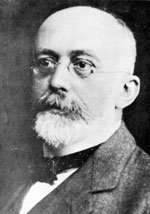
Hardy-Weinberg Practice Quiz
Assessment
•
Deleted User
•
Science
•
8th Grade
•
6 plays
•
Medium
Improve your activity
Higher order questions
Match
•
Reorder
•
Categorization
.svg)
actions
Add similar questions
Add answer explanations
Translate quiz
Tag questions with standards
More options
10 questions
Show answers
1.
Multiple Choice
The synthetic theory of evolution is based at least in part on:
a rejection of mutation as a source of evolution.
an acceptance of natural selection as a cause of evolution.
a rejection of population genetics.
B and C
2.
Multiple Choice
"The sum total of the genetically inherited changes in the individuals who are members of a population" is a description of:
genetic drift
non-random mating
evolution
3.
Multiple Choice
Godfrey Hardy and Wilhelm Weinberg concluded that gene pool frequencies are:
inherently stable
inherently unstable
impossible to determine since we can only observe phenotypes and not genotypes
4.
Multiple Choice
Which of the following statements is true of the Hardy-Weinberg equation (p2 + 2pq + q2 =1)?
The "p" represents the frequency of the recessive allele for a specific trait in a population.
In order to use the equation, you have to know all of the genotype frequencies first.
The equation allows you to discover the genotype frequencies if you know the phenotype frequencies.
5.
Multiple Choice
The Hardy-Weinberg equilibrium equation (p2 + 2pq + q2 = 1) allows geneticists to:
keep track of changes in phenotype frequencies from generation to generation in small families.
keep track of changes in genotype frequencies from generation to generation in a population.
determine what evolutionary mechanisms are causing changes in a population's gene pool frequencies.
6.
Multiple Choice
Population genetics and synthetic theory of evolution were developed mostly in the ____ century.
18th
19th
20th
21st

Explore this activity with a free account
Find a similar activity
Create activity tailored to your needs using
.svg)

Float and Sink
•
KG

Senses Organ
•
KG

Natural Phenemenon
•
KG

Theory of Evolution and Natural Selection
•
8th Grade

Plant Parts & Their Functions
•
University

Opposites
•
KG

Earth
•
1st Grade

Circuits
•
4th Grade